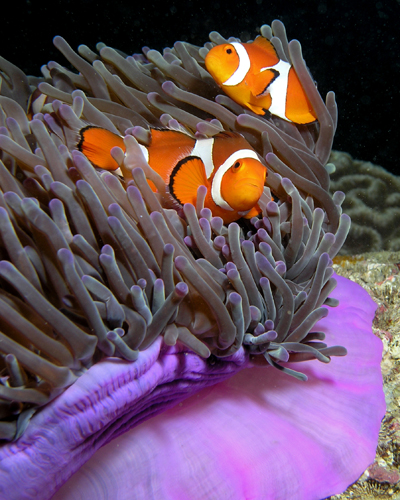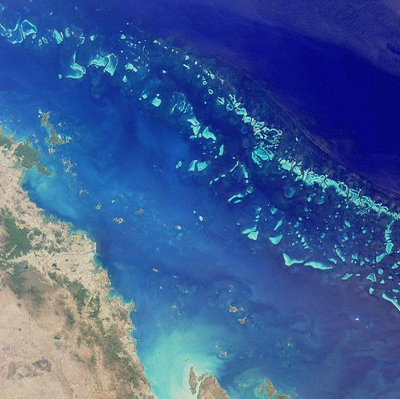Scientists and conservationists who have been converging in Cairns, Australia, for a global summit on coral reefs have called for an immediate worldwide effort to save what’s left of the planet’s coral reefs from decline as a result of issues such as rising sea temperatures, overfishing and land pollution.
The marine researchers are in Cairns in Queensland, Australia, for the 12th International Coral Reef Symposium that’s taking place from 9 to 13 July.
From Cairns, 2,600 scientists have signed a Consensus Statement on Climate Change and Coral Reefs.
The consensus statement calls for a worldwide effort to overcome growing threats to coral ecosystems and to the livelihoods of millions of people who depend on them. It is urging immediate action to stave off what the scientists are calling “escalating damage” to coral reefs, as a result of rising sea temperatures, ocean acidification, overfishing and pollution from the land.
The World Resources Institute has also just published a new report called Reefs at Risk Revisited in the Coral Triangle. The report, a map-based analysis of threats to coral reefs around the world, particularly hones in on the countries of the Coral Triangle – Indonesia, Malaysia, Papua New Guinea, the Philippines, Solomon Islands, and Timor-Leste.

Purple anemone and anemonefish, also known as clownfish in East Timor. Image by Wikimedia Commons
According to the report, more than 85pc of reefs within the Coral Triangle region are threatened by local stressors, such as overfishing, pollution, and coastal development.
Speaking from Cairns at the ICRS2012, Jeremy Jackson, a senior scientist from the Smithsonian Institution, said reefs globally have seen severe declines in coral cover over several decades.
In the Caribbean, for instance, he said 75-85pc of the coral cover has been lost in the past 35 years.
Jackson, the 2012 recipient of the Darwin Medal, said that even Australia’s Great Barrier Reef, one of the best-protected reef ecosystems on the planet, has experienced a 50pc decline in coral cover in the past 50 years.
Satellite image of part of the Great Barrier Reef adjacent to the Queensland coastal areas of Airlie Beach and Mackay. Image by Wikimedia Commons
Jackson said climate change is making this already rapid decline of coral reefs worse. He also touched on how climate change is causing increased droughts, agricultural failure and sea level rises at much faster rates.
“That means what’s good for reefs is also critically important for people and we should wake up to that fact,” Jackson said. “The future of coral reefs isn’t a marine version of tree-hugging but a central problem for humanity.”
According to the marine experts, coral reefs provide food and livelihood for many tens of millions of coastal inhabitants globally, as well as having tourism spin-offs. The scientists estimate that reefs provide upwards of US$170bn to US$375bn in goods and services globally each year.
Coral reef image via Shutterstock
